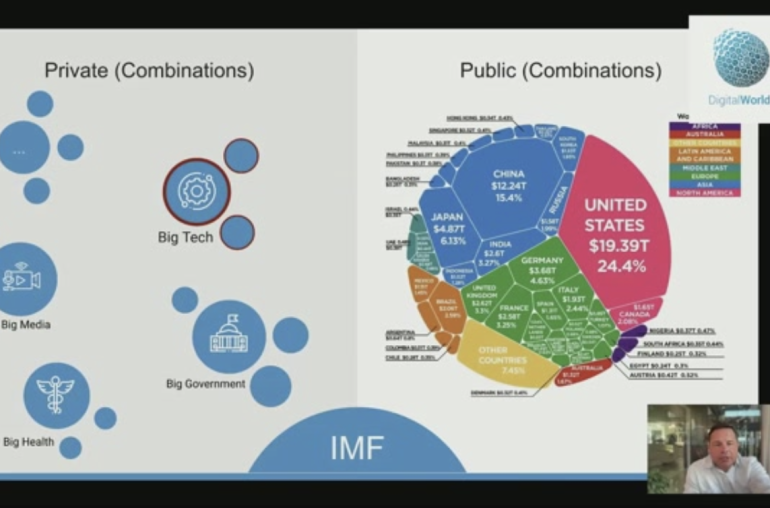In an recent General Council, it was discussed what could happen if we move to a completely digital financial system, like central bank digital currencies. The video highlights major concerns about our privacy and freedom. It points out that with digital money, authorities could control even the smallest details of where we spend our money. For example, if rules were set about how far you could travel from home, you might find yourself unable to buy something as simple as a bottle of water if it’s beyond that limit.
He then looks at what happens when things like our driver’s licenses or birth certificates are all linked up with our digital identities. then discusses the implications of having all our important information like driver’s licenses or birth certificates tied to our digital identity. He emphasizes how this could lead to increased tracking and less privacy in our daily lives.
Michael Proper also explores the scenario where a major global crisis, such as a hypothetical World War III, leads to cash becoming obsolete and digital currencies becoming the norm. In this potential future, he stresses the importance of decentralization in financial systems. Decentralization is crucial, he argues, to prevent any single entity or group from having too much control, which could endanger personal freedoms. By ensuring that no one has all the power, decentralization helps preserve individual independence and rights in financial transactions.
He emphasized the critical need to maintain a balance between technological advancements and individual rights. He argued for the importance of keeping financial systems decentralized to safeguard personal freedoms against the backdrop of an increasingly digital world. To help ensure that you stay out of the control of the centralized system, consider exploring the Digital World.




